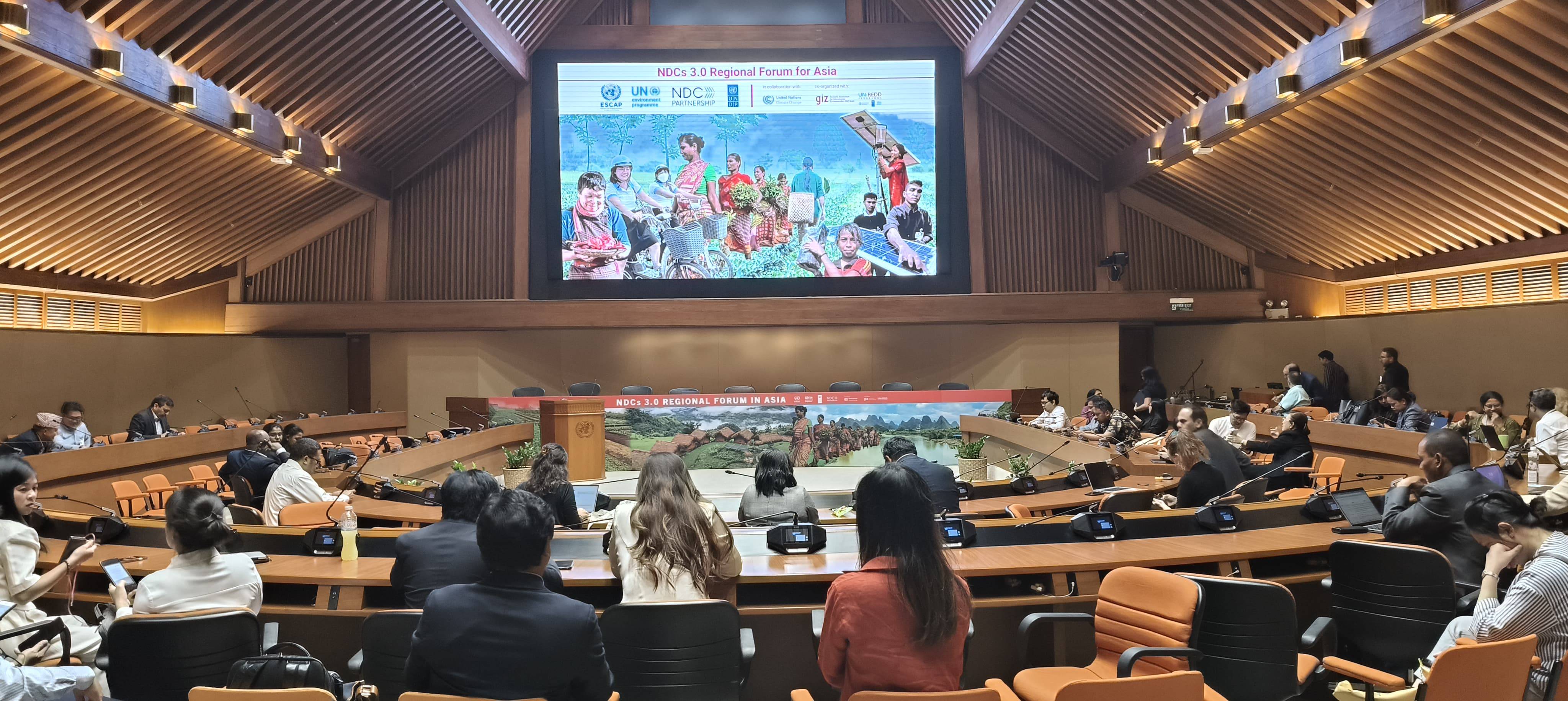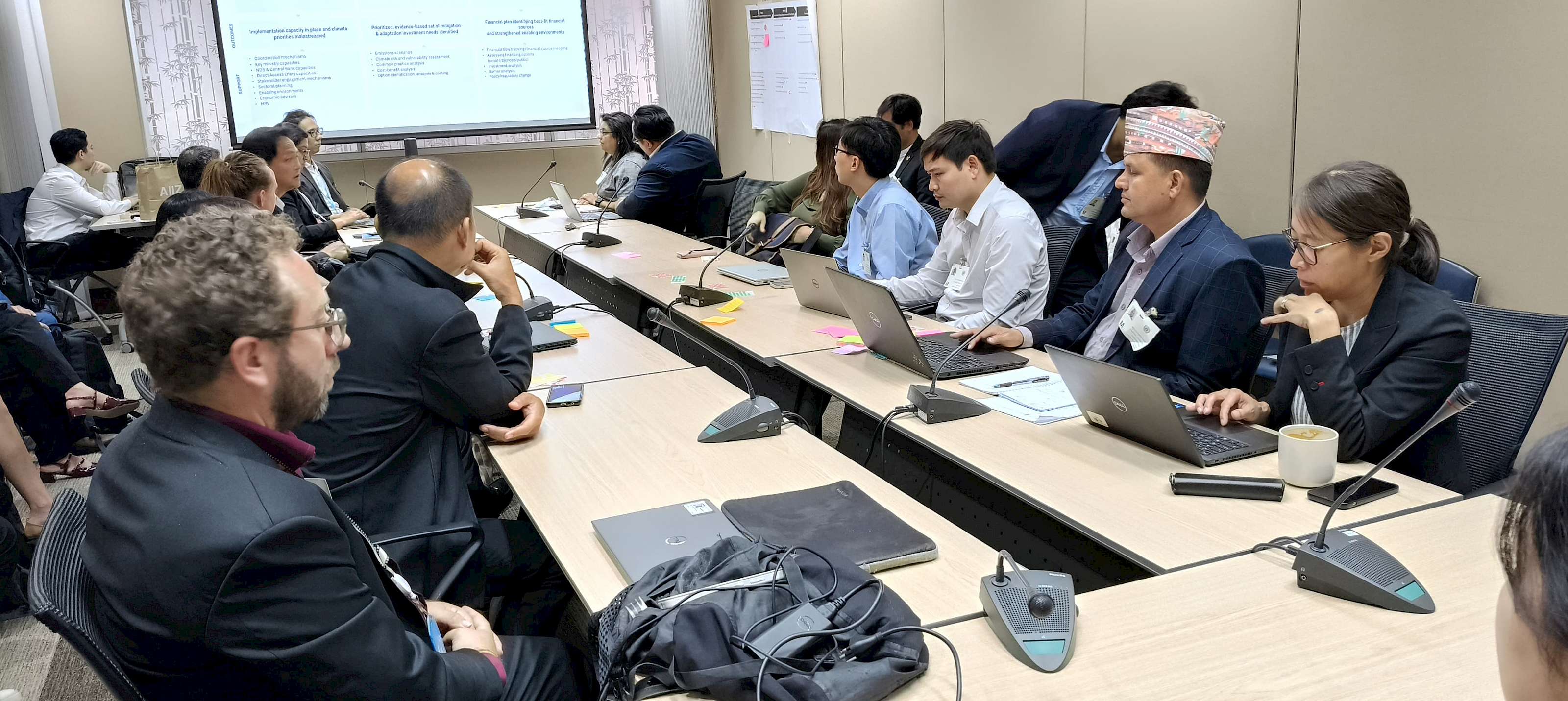
The recently concluded NDC 3.0 Regional Forum for Asia marked an important moment in regional climate action as it became the first official UNFCCC platform to formally discuss the Circular Economy (CE). As Parties to the Paris Agreement gear up to update their Nationally Determined Contributions (NDCs), the forum emphasized the crucial role of Sustainable Consumption and Production (SCP) and circularity in addressing the growing climate crisis. SWITCH-Asia, in collaboration with the United Nations Development Programme (UNDP), co-led the thematic discussions on circularity on the forum’s second day. This milestone signifies an important turning point, not just for the region, but globally, as climate and material resource use become an agenda item in main climate policy discussions.
Material Use and Climate Change: An Underexplored Nexus
One of the key highlights of the discussions was the linkage between climate change and material resource use. This connection, while critical, remains underexplored in global climate conversations. According to the International Resource Panel (IRP) and its recently released flagship report, the Global Resources Outlook, at least 55% of global greenhouse gas (GHG) emissions stem from the extraction and processing of material resources.
The implications of this are vast. Material consumption is expected to increase as we progress towards achieving SDGs. As countries strive toward net-zero transformations, the availability of critical materials could potentially limit progress. Climate change adaptation efforts, too, require substantial amounts of materials, further underscoring the need to align adaptation actions with sustainable resource use. Sustainable Consumption and Production (SCP) and circular economy practices are, therefore, essential not only for climate change mitigation but also for building resilience to climate impacts.
A Fresh Look at Circular Economy for Climate Action

During the thematic discussions on circularity at the NDC 3.0 Regional Forum for Asia, delegates representing the governments of Asia-Pacific Region and the development partners highlighted the necessity of rethinking how Circular Economy is approached within climate strategies. It was emphasized that circularity extends far beyond recycling and waste management. Instead, it encompasses a holistic lifecycle approachfrom material extraction, product design, and value chain management to policy frameworks that divert secondary materials back into production, reducing reliance on virgin materials from natural ecosystems. As a result, it cuts across all sectors in the economy, across supply chains of industries and services, involving private sector actors, public sector and communities.
This broader understanding of circular economy aligns with the goal of reducing the environmental impact of resource extraction while simultaneously ensuring more efficient climate action. By doing more with fewer materials and reducing waste streams, circularity can play a key role in both mitigating emissions and alleviating pressure on ecosystems. Based on the outcomes of the Global Stocktake (GST) of the Paris Agreement, it is crucial for parties to raise their ambition levels with an "economy-wide" approach to ensure the transformation toward limiting global temperature rise to 1.5°C remains on track. In this perspective, SCP and CE offers a present a valuable opportunity to elevate climate ambitions while also delivering broader sustainable development co-benefits.
Countries in the Asia-Pacific region are beginning to recognize the value of integrating SCP and CE actions into their NDCs. Some have already included these actions as part of their climate strategies, acknowledging that sustainable resource use is critical for long-term climate resilience. Delegates at the forum emphasized the need for capacity building and raising awareness about the full potential of SCP and CE in achieving climate goals. While SCP and CE are not yet fully recognized within the official themes of UNFCCC negotiations, such as the GHG inventory or the transparency framework, participants expressed optimism that they would soon become mainstream elements in climate policy.
SWITCH-Asia’s Role in Advancing Circularity and SCP
SWITCH-Asia is actively working to advance the integration of SCP and CE into climate frameworks through regional initiatives. The programme is currently implementing two regional Technical Assistance (TA) projects to incorporate these principles into NDC 3.0 and Long-Term Low-Emission Development Strategies (LT-LEDS) in both South Asia and the Pacific regions. Another similar TA initiative is being developed for Central Asia.
In the lead-up to COP29, which will be held in Baku, Azerbaijan, SWITCH-Asia plans to undertake a series of actions to build on the outcomes of the NDC 3.0 Regional Forum. These efforts aim to further strengthen the role of SCP and circularity in global climate action.
As discussions at the NDC 3.0 Forum made clear, circular economy principles offer a vital opportunity to enhance climate action by reducing material use and GHG emissions. By focusing on SCP and CE, countries can significantly improve their climate mitigation and adaptation strategies. However, there is still much work to be done to bring SCP and CE to the forefront of official UNFCCC frameworks, including the GHG inventory and transparency mechanisms.
Moving forward, the inclusion of circularity and SCP in global climate policy is not just desirable—it’s necessary. By integrating these strategies, countries can maximize the impact of their climate actions while reducing pressure on ecosystems and fostering more resilient, low-carbon economies.
Related articles and projects
- SWITCH-Asia Joins Asia NDC 3.0 Regional Forum for Asia to Support Countries Advance Climate Pledges Under the Paris Agreement
- Connecting the Dots: Climate Action & Resource use Efficiency
- Climate Action and Resource use Efficiency in the Pacific
- Understanding the Nexus Between SCP, Circular Economy and Climate Change: Global Perspectives Towards Enhanced Climate Ambition


